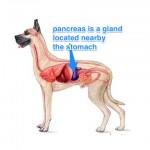Healthy Dog Club interviews Dr Jean Dodds, a world renown vaccine research scientist about hypothyroidism in dogs, a growing epidemic often misunderstood among owners. She is also founder of Hemopet, a nonprofit animal blood bank in Southern California and has a new book out, “The Canine Thyroid Epidemic: Answers You Need for Your Dog” written with Diana R. Laverdure (Dogwise Publishing, $19.95).
Dr Dodds talks about:
- The hypothyroid epidemic in dogs
- Causes of hypothyroidism (nutrition, genetics, vaccinations etc.)
- The role thyroid plays in dog’s health and function
- Importance in addressing this condition, treatment options, medication side effects
- Diet/supplementation helping your dog’s hypothyroidism
- Why is this such a misunderstood disease among dog owners as well as vets
- How it is diagnosed
and much more….
Part 1.
Part 2.
Part 3.
You may buy Dr Dodds new book, Canine Nutrigenomics: The New Science of Feeding Your Dog for Optimum Health
______________________________________________________________
Wholesome nutrition is the key to maintaining a healthy immune system and resistance to
disease. Commercial foods ingested by animals on a regular basis may not be balanced in
terms of major nutrients, minerals and vitamins, and some continue to add chemicals to the final
product to enhance its stability and shelf-life. Nutritional deficiencies or imbalances as well as
exposures to various chemicals, drugs and toxins present a continual immunological challenge
which can suppress immune function, especially in those animals genetically susceptible to
immune dysfunction (immune deficiency, autoimmunity, allergies).
The exciting new field of nutrigenomics is an emerging science that studies the molecular
relationships between nutrition and the response of genes in promoting health. Different diets
elicit different patterns of gene and protein expression as well as metabolite production; these
are termed molecular dietary signatures.
______________________________________________________________
Wholesome nutrition is the key to maintaining a healthy immune system and resistance to disease. Commercial foods ingested by animals on a regular basis may not be balanced in terms of major nutrients, minerals and vitamins, and some continue to add chemicals to the final product to enhance its stability and shelf-life. Nutritional deficiencies or imbalances as well as exposures to various chemicals, drugs and toxins present a continual immunological challenge which can suppress immune function, especially in those animals genetically susceptible to immune dysfunction (immune deficiency, autoimmunity, allergies). The exciting new field of nutrigenomics is an emerging science that studies the molecular relationships between nutrition and the response of genes in promoting health. Different diets elicit different patterns of gene and protein expression as well as metabolite production; these are termed molecular dietary signatures.
About Dr Dodds
Dr. Dodds received her D.V.M. degree with honors in 1964 from the Ontario Veterinary College, University of Toronto. In 1965 she accepted a position with the New York State Health Department in Albany and began comparative studies of animals with inherited and acquired bleeding diseases. Her position there began as a Research Scientist and culminated as Chief, Laboratory of Hematology, Wadsworth Center.
In 1980 she also became Executive Director, New York State Council on Human Blood and Transfusion Services. This work continued full-time until 1986 when she moved to Southern California to establish Hemopet, the first nonprofit national blood bank program for animals.
From 1965-1986, she was a member of many national and international committees on hematology, animal models of human disease, veterinary medicine, and laboratory animal science. Dr. Dodds was a grantee of the National Heart, Lung, and Blood Institute (NIH) and has over 150 research publications. She was formerly President of the Scientist’s Center for Animal Welfare; and Chairman of the Committee on Veterinary Medical Sciences and Vice-Chairman of the Institute of Laboratory Animal Resources, National Academy of Sciences.
In 1974 Dr. Dodds was selected as Outstanding Woman Veterinarian of the Year, AVMA Annual Meeting, Denver, Colorado; in 1977 received the Region I Award for Outstanding Service to the Veterinary Profession from the American Animal Hospital Association, Cherry Hill, New Jersey; in 1978 and 1990 received the Gaines Fido Award as Dogdom’s Woman of the Year; and the Award of Merit in 1978 in Recognition of Special Contributions to the Veterinary Profession from the American Animal Hospital Association, Salt Lake City, Utah.
In 1984 she was awarded the Centennial Medal from the University of Pennsylvania School of Veterinary Medicine. In 1987 she was elected a distinguished Practitioner of the National Academy of Practice in Veterinary Medicine.
In 1994 she was given the Holistic Veterinarian of the Year Award from the American Holistic Veterinary Medical Association. She is an active member of numerous professional societies.
Today, Dr. Dodds is actively expanding Hemopet’s range of nonprofit services and educational activities. The animal blood bank program provides canine blood components, blood bank supplies, and related services throughout North America. Hemopet’s retired Greyhound blood donors are adopted as pets through the Pet Life-Line arm of the project. On behalf of Hemopet, she consults in clinical pathology nationally and internationally. She is also the Editor of Advances in Veterinary Science and Comparative Medicine for Academic Press. In addition, Dr. Dodds is the holder of six patents related to animal genetics, antibodies, health care, nutrition and wellness.










